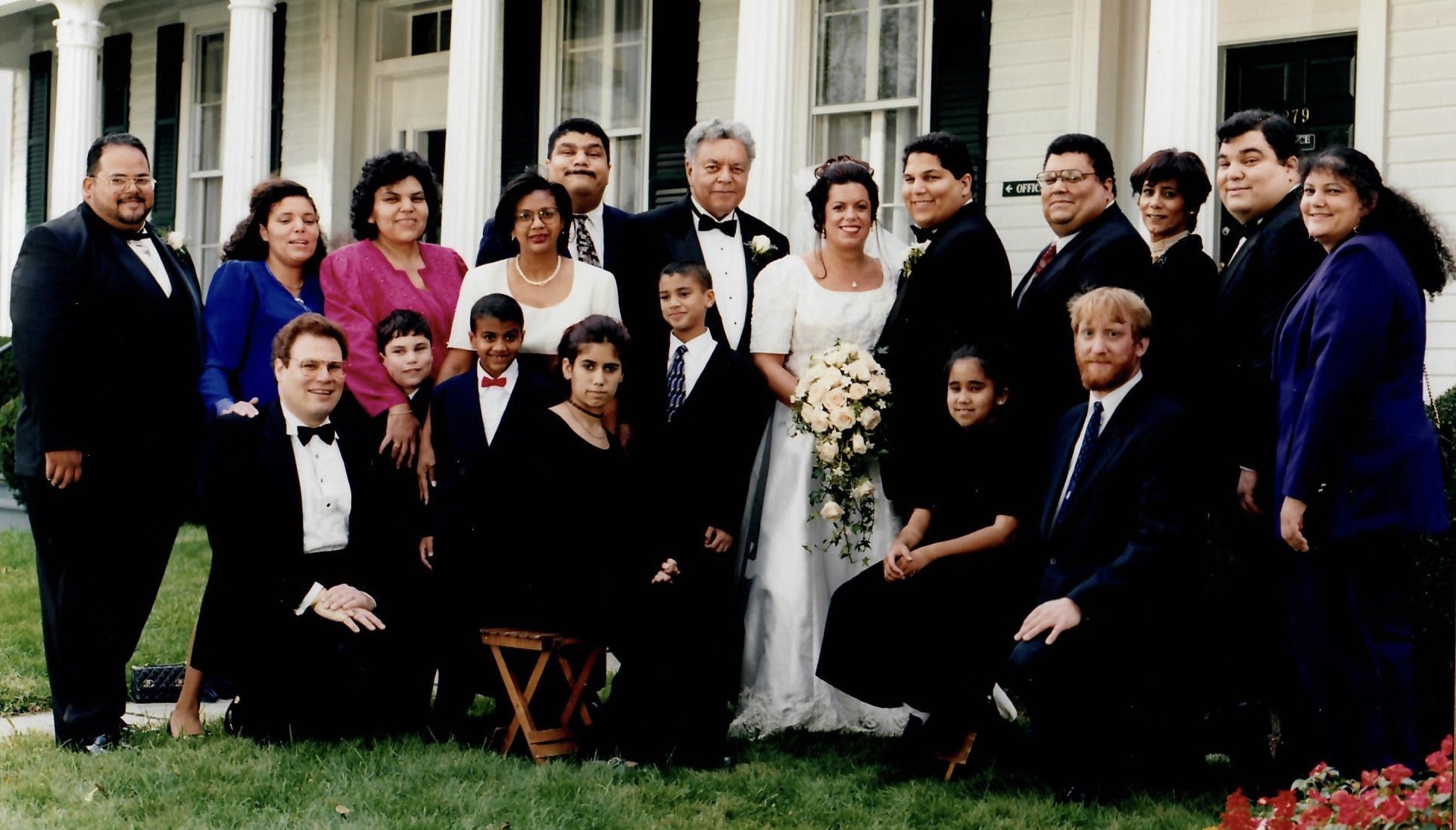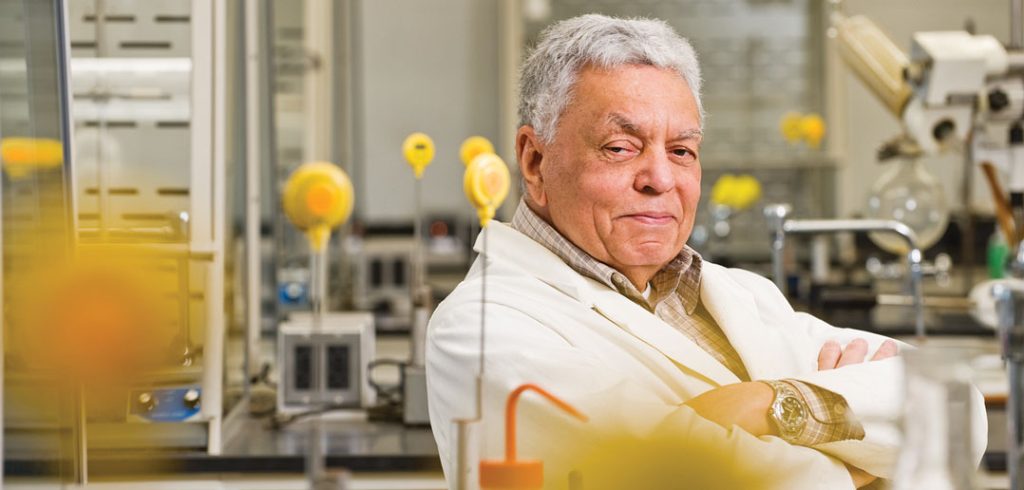“He was a great scientist and a remarkable thinker. He loved every aspect of chemistry,” said his colleague Shahrokh Saba, Ph.D., a current chemistry professor who taught with Clarke for more than four decades. “Even a week or so before he passed, he was asking me to do something related to chemistry for him.”
Clarke served as chair of the chemistry department for six years. His collective research in biochemistry and neurochemistry led to more than 100 published articles and book chapters. Some of his research led to the creation of drug treatments, including one that he personally benefited from when he had a case of shingles. At Fordham, he helped to establish the University’s nuclear magnetic resonance facility, where faculty and students study the molecular structure of substances, said Saba.
‘I Never Dreamed of the Possibility’
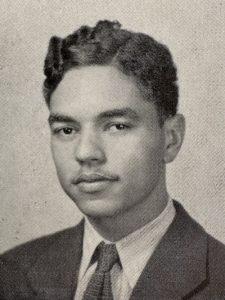
Clarke was born in Kingston, Jamaica, on March 20, 1930, to Izzet Dudley Clarke and Ivy Clarke, née Burrows. He was a “rising star,” said Peter, but it was difficult for him to pursue his passions at home.
In 2017, Clarke spoke to Fordham News about his educational journey.
“I was the eldest of four children and the first in my immediate family to attend high school. There was no university in Jamaica at that time, and my parents couldn’t afford to send me abroad for higher education,” he recalled.
Clarke’s adviser at St. George’s College, a Jesuit high school, reached out to Fordham for help.
The University’s president at the time, Robert Gannon, S.J., offered Clarke a scholarship. He earned his bachelor’s degree in chemistry in 1950 and continued at the University as a chemistry department assistant. He went on to complete his master’s degree in 1951 and his Ph.D. in 1955 from Fordham.
“I never dreamed of the possibility of such accomplishments as I was growing up,” Clarke said.
‘A New Life’ as a Chemist and Bronxite
In 1962, he returned to Fordham as an associate professor of chemistry. He was promoted to full professor in 1970, later serving as department chair from 1978 to 1984.
“Don Clarke’s calm, kindly disposition provides an interesting contrast to his fierce love of learning and his intense dedication to his field of biochemistry,” reads his citation from Fordham’s 2022 Convocation, where he received a standing ovation for his longtime service.
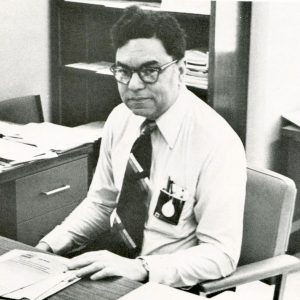
Clarke was a fellow of the American Chemical Society, where he also served as chair and councilor of the New York section. Before joining Fordham’s faculty, he held research positions at the University of Toronto, Mount Sinai Medical Center, New York Psychiatric Institute, and Columbia University, continuing his work with the Mount Sinai School of Medicine while working at Fordham.
“He was a stream of references, papers, educational techniques, lab procedures, and amazing insight into the fundamentals of academic chemistry,” said Frank Sena, Ph.D., an adjunct professor who first met Clarke when Clarke was a young faculty member and Sena was a chemistry doctoral student. “Very recently when this semester began, I wrote to him expressing how strange it was without him on Thursday afternoons. … [John Mulcahy Hall] will be emptier without him.”
Clarke retired from Fordham last year, concluding nearly 70 years at the University—as both a faculty member and a three-time Ram.
“The fact that he had gotten the president’s scholarship in 1948, there was always [this sense of]payback, I think, on some level,” said his son Peter, adding that Fordham became his father’s second home. “It was the thing that helped him leave Jamaica and start a new life. Fordham treated him well, so he treated Fordham well.”
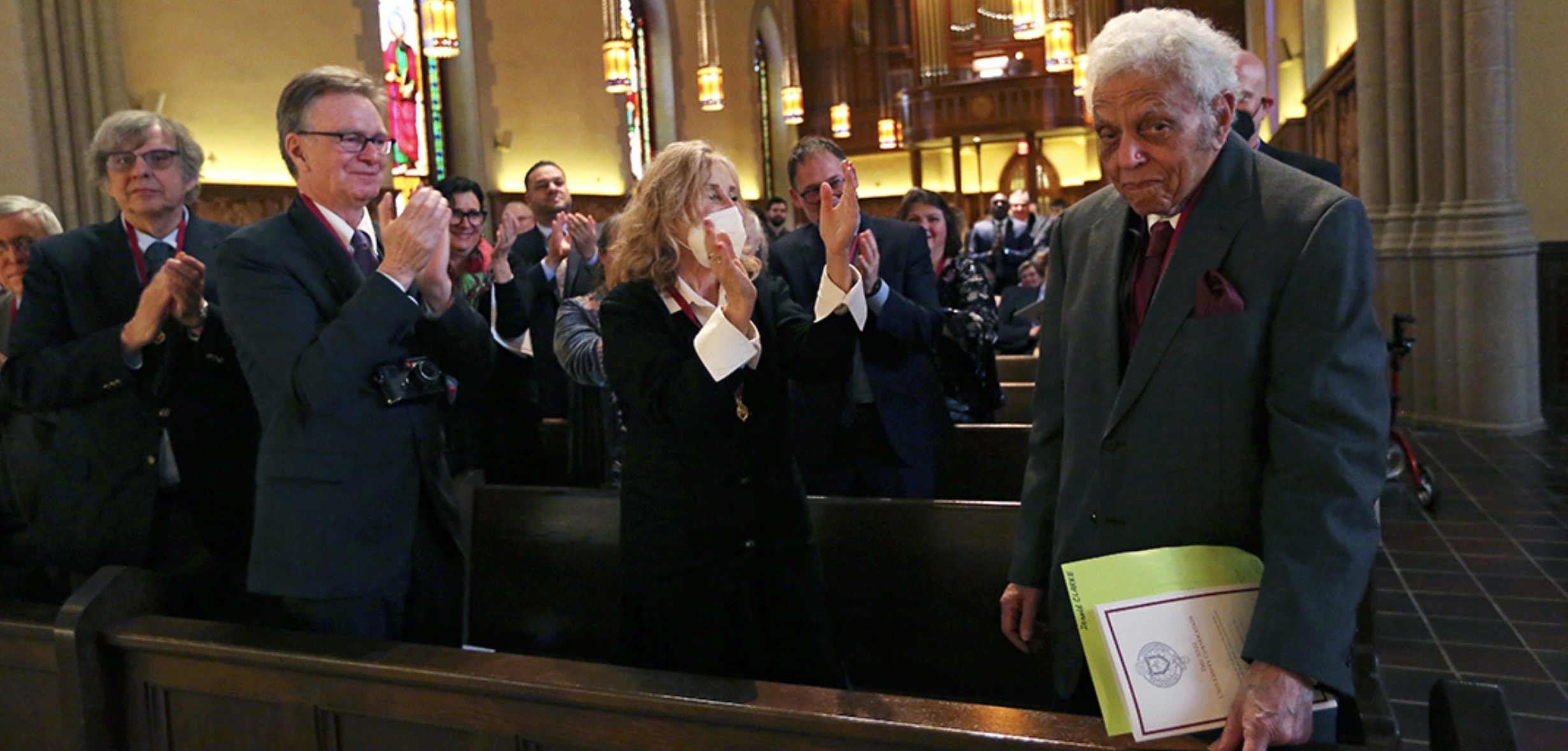
For more than 50 years, Clarke lived in a Bronx house that was about a mile from the Rose Hill campus, said his son. He walked across Fordham Road to campus every day, carrying his briefcase, until it became difficult for him to walk. (Instead, he took the bus.)
In his spare time, Clarke was an avid puzzle solver who worked on The New York Times crossword puzzle every day, according to his family obituary. He inspired his great-grandchildren to play Sudoku.
Clarke is predeceased by his parents and his wife, Marie Clarke, née Burrowes; daughter Carol Halper; sons Stephen Clarke and Ian Clarke; and daughter-in-law Dawn. He is survived by his children Paula Clarke, David Clarke, Sylvia Clarke, and Peter Clarke; seven grandchildren; and two great-grandchildren.
A funeral Mass for Clarke was held at the Church of the Holy Spirit in Stamford, Connecticut, on Feb. 29, directly followed by his burial at Kensico Cemetery in Valhalla, New York. A Fordham memorial service will be held at the University Church on April 6 at 11 a.m., followed by a reception. Gifts in Clarke’s name may be made to Fordham University or the Exchange Club of Stamford.
